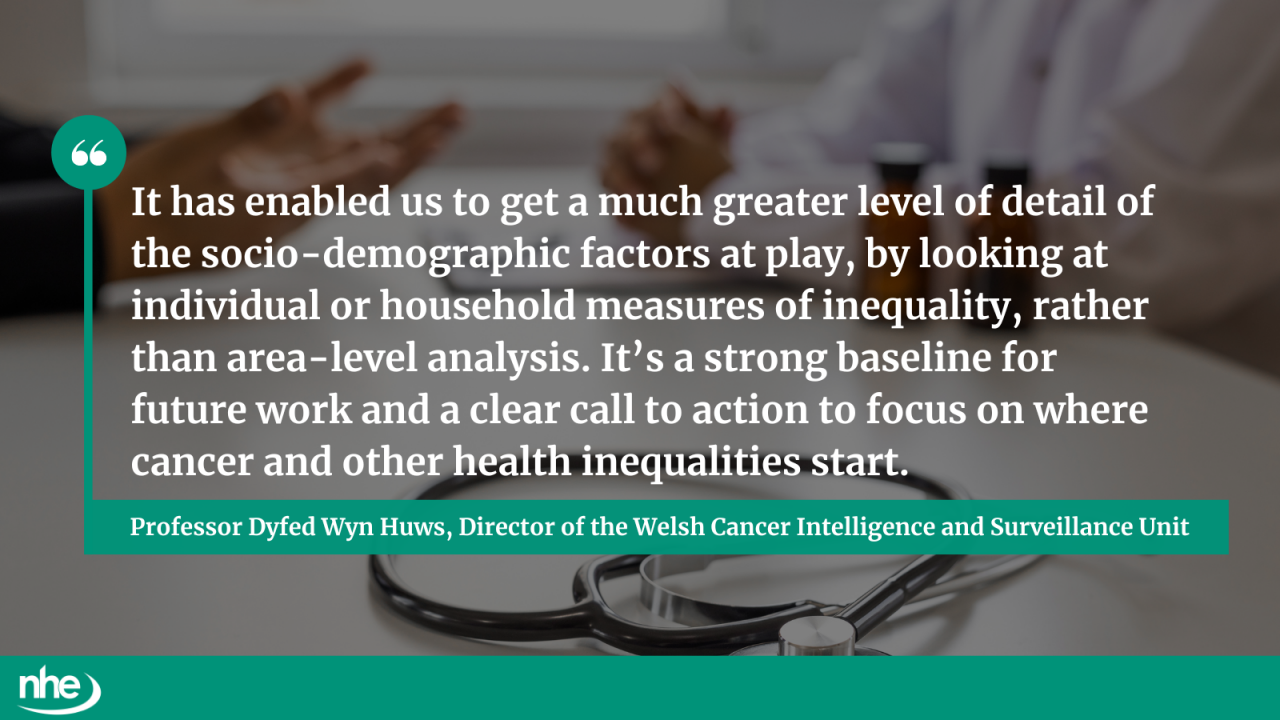A groundbreaking study by Public Health Wales has revealed significant disparities in cancer rates across Wales, linked to housing conditions, occupation, and ethnicity.
The research, conducted by the Welsh Cancer Intelligence and Surveillance Unit (WCISU), is the first to link national cancer registry data with Census data across the entire Welsh population.
The findings show that people living in overcrowded housing are seven times more likely to develop cancer than those with two or more spare rooms—even after adjusting for age. Residents in social housing also face nearly three times the cancer risk compared to homeowners.
The study highlights how socioeconomic conditions directly impact cancer outcomes:
- Housing: Overcrowding and social housing are strongly associated with higher cancer incidence.
- Occupation: People in lower-paid, manual jobs—such as machine operatives—have the highest cancer rates and are more likely to be diagnosed at a later stage.
- Ethnicity: While the White population has the highest overall cancer rates (partly due to age), people from Mixed ethnic backgrounds are more likely to be diagnosed late. Black men are more likely to develop prostate cancer, and Asian women are more likely to be diagnosed with breast cancer.
Director of the Welsh Cancer Intelligence and Surveillance Unit, Professor Dyfed Wyn Huws, commented:
“This is the first time we've been able to look at unfair inequalities in cancer rates through this level of detail using individual data across the whole of the Welsh population. It’s a major step forward in understanding and reducing cancer inequalities in our society.
“It has enabled us to get a much greater level of detail of the socio-demographic factors at play, by looking at individual or household measures of inequality, rather than area-level analysis. It’s a strong baseline for future work and a clear call to action to focus on where cancer and other health inequalities start.
“In too many parts of Wales, the building blocks of health and wellbeing - such as healthy homes, good jobs, enough money to pay bills, connections with people in our communities, education and skills, and safe and clean environments - are not strong enough or are missing altogether. This leads to poorer health and lives being cut short, creating or worsening health inequalities (differences in health between groups of people and communities).
“Up to 4 in 10 cases of cancer are potentially preventable amongst the population of Wales as a whole. Preventing cancer and achieving earlier diagnosis is a priority for everyone in the system."

The study used anonymised data from the 2011 Census and the national cancer registry, securely linked via Swansea University’s SAIL Databank. The findings underscore the urgent need for targeted public health interventions to address the social determinants of cancer.
Public Health Wales is calling for policies that tackle housing inequality, occupational health risks, and barriers to early diagnosis—particularly in underserved communities.
Image credit: iStock



















